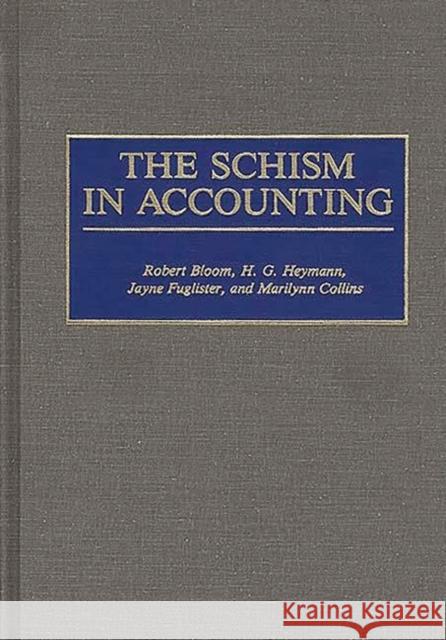The Schism in Accounting » książka
The Schism in Accounting
ISBN-13: 9780899306995 / Angielski / Twarda / 1994 / 168 str.
The authors analyze the schism between accounting practitioners and academics, providing historical, philosophical, and political perspectives on this division. They support the efforts of the Accounting Education Change Commission in its call for sweeping changes in the scope and quality of accounting education. This schism originated before the turn of the century in the United States over concerns about the best preparation for professional accountants. Since that time, the nature of the schism has broadened considerably. Accounting has largely been taught in a structured framework, far removed from the dynamic and ill-structured situations resulting from environmental changes in which accounting is practiced. This gulf between accounting and practice reflects the schism today, which has become a division between individuals with different philosophical, economic, and political goals and attitudes. Nevertheless, the authors view the schism in a positive light--as a natural reflection of different ideas that lead to beneficial changes.
The authors begin with a philosophical perspective on the schism, as a division between opposing ideas, and deal with three areas of the accounting schism: education, practice, and standard-setting. The main focus is on education. The history of the schism is then delineated. Other views of the schism are considered next, including economic, political, and utilitarian. The function of the schism in the world of accounting is examined. Recent changes in the nature and complexity of the environment in which accounting is practiced are presented. This book is suitable for use in accounting theory and policy courses at the undergraduate and graduate levels and in accounting education seminars at the graduate level. In addition, the book should be of interest to accounting practitioners.











